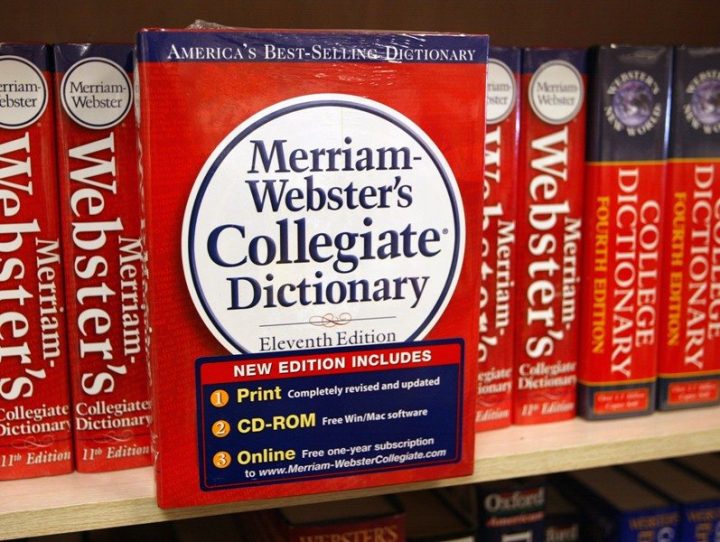WTF?! That NSFW abbreviation along with photobomb and jegging have been added to the Merriam-Webster dictionary.

NSFW has been added as well.
The dictionary announced in a blog Tuesday that its list of approved words has grown by more than 1,700 entries.
“It’s happened again: this dictionary has gotten bigger,” the blog post read.
Some of the other terms include:
Net neutrality: “the idea, principle, or requirement that internet service providers should or must treat all internet data as the same regardless of its kind, source, or destination.”
Emoji: “any of various small images, symbols, or icons used in text fields in electronic communication to express the emotional attitude of the writer.”
Click-bait: “something (such as a headline) designed to make readers want to click on a hyperlink especially when the link leads to content of dubious value or interest.”
Meme: “An idea, behaviour, style, or usage that spreads from person to person within a culture.”
Macaron: “A light, often brightly coloured sandwich cookie consisting of two rounded disks made from a batter of egg whites, sugar, and almond flour surround a sweet filling.”
Jegging: “a legging that is designed to resemble a tight-fitting pair of denim jeans and is made of a stretchable fabric.”
NSFW: “Not safe for work”
WTF: “What the f—k.”
“Whatever they do or are, all of them are members of this vibrant, expanding language we share. And now they’re part of Merriam-Webster Unabridged too,” the blog post reads.
Merriam-Webster added some terms to the dictionary in 2014 as well, including selfie, fracking, freegan, dubstep, social networking and auto-tune (despite Jay Z declaring its death in 2009).
Hate the words and don’t think they should be in the dictionary? Well, stop using them. Merriam-Webster’s website explains the dictionary decides which words are included based on how often and how they’re used.
“The editors scour the texts in search of new words, new usages of existing words, variant spellings, and inflected forms–in short, anything that might help in deciding if a word belongs in the dictionary, understanding what it means, and determining typical usage. Any word of interest is marked, along with surrounding context that offers insight into its form and use.”
- Premier Moe responds to Trudeau’s ‘good luck with that’ comment
- Drumheller hoping to break record for ‘largest gathering of people dressed as dinosaurs’
- As Canada’s tax deadline nears, what happens if you don’t file your return?
- Planning a summer trip to Quebec’s Îles-de-la-Madeleine? You’ll have to pay up




Comments